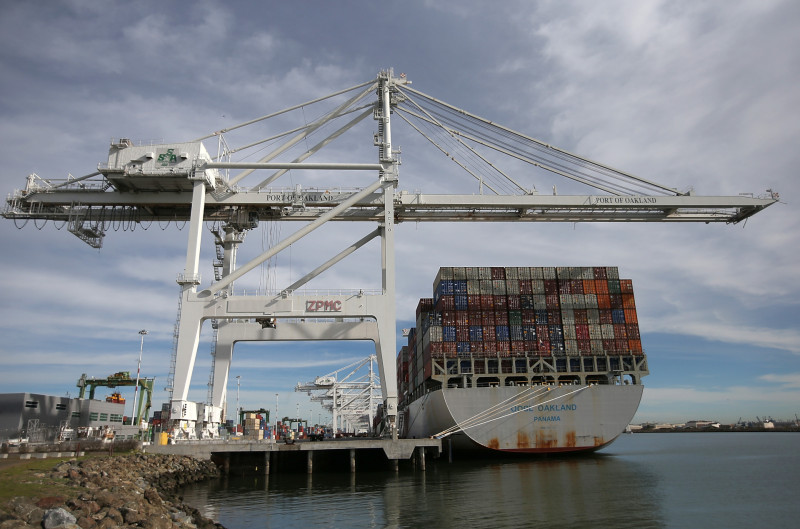Thirty unionized dockworkers at the Port of Oakland were fired this morning for showing up for work 15 minutes after their employer asked them to arrive, a dispute that resulted in the suspension of daytime operations at the facility's largest terminal.
The employees, represented by the International Longshore and Warehouse Union (ILWU), arrived at work at the Oakland International Container Terminal at 7 a.m., ILWU spokesman Craig Merrilees said.
Last week, the company that operates that terminal, SSA Marine, told its dockworkers to show up at 6:45 a.m., Merrilees said, adding that 7 a.m. is the time designated for ILWU members to arrive, according to their contract.
"We're arguing with these folks over 15 minutes, but it's a matter of respecting the word that they gave in writing and making sure that people honor their word," Merrilees said in an interview. "The operator of the dock decided that they would no longer observe and respect the contract and would start requiring workers to come in earlier than the contract specified."
An arbitrator is working with the ILWU and the Pacific Maritime Association, which represents the port's shipping companies, to resolve the conflict.
